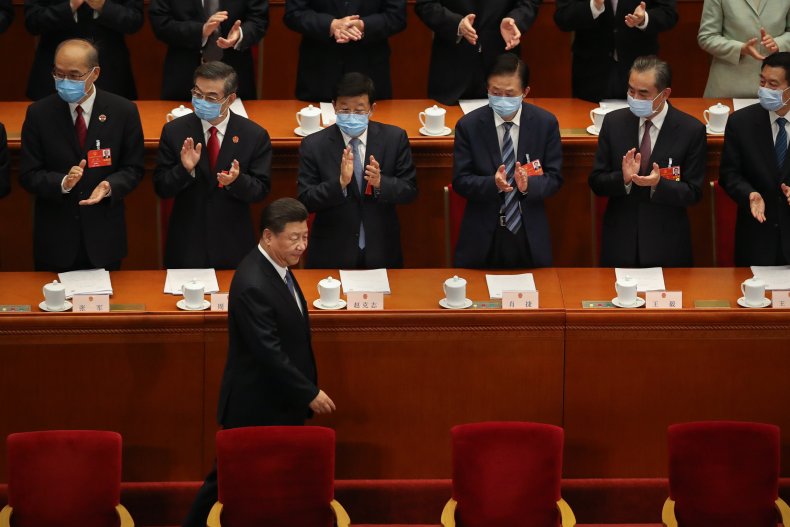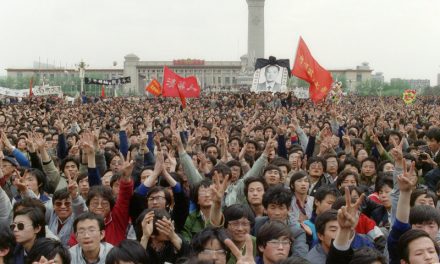By JIANLI YANG
Opposition to China’s paramount leader, Xi Jinping, is increasing despite severe crackdown on dissenting voices. Intrusive security controls and surveillance, undue centralization of power, mishandling of unrest in Hong Kong, foreign relations flare-ups and now the coronavirus crisis have resulted in cracks in the armor of the ruling Chinese Communist Party (CCP). All this, especially now coupled with an economic downturn, has led critics to speak out against Xi Jinping—which could potentially snowball into major unrest against the communist regime.
Recently, Cai Xia, who was professor at the CCP’s elite Central Party School, charged Xi Jinping with destroying the country with his policies. Taking Xi Jinping head-on, Xia said there was widespread opposition to the Party chief within the Party, but very few dared to speak out due to retaliation threats such as corruption charges. “Under the regime of Xi, the Chinese Communist Party is not a force for progress for China. In fact, it is an obstacle to China’s progress,” Xia said. “I believe I am not the only one who wants to leave this party. More people would like to withdraw or quit this party.”
According to the BBC, over 170 minister- and deputy minister-level officials across China were sacked, and many more were jailed under the charges of corruption, misconduct and violation of party discipline from 2012 to 2017. The scale of purging opponents has never been so massive since Mao Zedong’s rule. Between 1949 and 2012, in a span of 63 years, as many as 33 members (full and alternate) of the CCP’s Central Committee were disciplined. As the BBC has noted, though, Xi Jinping has overseen the biggest CCP purge in the history of communist China.
Xi Jinping brought in a new anti-graft institution, the National Supervision Commission, two years ago. The Commission consolidated power in the hands of the CCP central leadership. Ren Zhiqiang, a Party member and property tycoon, was disappeared after he accused Xi Jinping of mishandling the COVID-19 outbreak. Avoiding direct mention, he had called Xi Jinping a power-hungry clown and blamed the government’s strict limits on free speech for exacerbation of the pandemic. As expected, Zhiqiang was charged with embezzlement and wrongful gains before he was made to disappear from public view.
Xu Zhangrun, a law professor at Tsinghua University in Beijing, accused Xi Jinping of putting politics ahead of the lives of the people in a strongly worded piece. “The political system has collapsed under tyranny, and a governance system made up of bureaucrats, which has taken the party more than 30 years to build, has floundered,” Xu Zhangrun wrote. He has been under strict surveillance and has been barred from leaving the country. Similarly, legal activist Xu Zhiyong was detained after he blamed Xi Jinping for a COVID-19 cover-up and demanded his resignation.

People in China are fed up with the strong demand of Xi Jinping’s government to prove their loyalty toward the current regime. All this amounts to a perfect dictatorship. Critics are now using coded language to show how Xi Jinping has messed up in his handling of the economy and foreign relations, in addition to imposing authoritarianism at home and Hong Kong. Some are using innuendos to criticize Xi Jinping on social media without so much as naming him, in order to avoid censors.
China’s economy is growing at a sluggish rate. Since Xi Jinping took over, the annual GDP growth rate has fallen from 7.86 percent in 2012 to 6.10 percent in 2019. Though Xi Jinping’s government has not issued a numerical growth target this year, China is set to face one of its worst performances in the post-Mao era.
Unemployment has been rising in China over the past few years, and it is showing no signs of easing in the near future amidst the pandemic. Beijing can censor political dissent on the streets or on social media, but unemployment is harder to paper over, said Fengshu Liu, a professor at the University of Oslo.
And these concerns are echoing in the corridors of power in China. Public Security Minister Zhao Kezhi has asked the Chinese law enforcement to pay particular attention to “destabilizing factors” stemming from the economic downturn and the pandemic. While Xi Jinping has managed to quash political dissidents effectively, now local protests are becoming ever more common over basic bread-and-butter issues.
Of course, I do not pretend that revolution will take place tomorrow. We need an overall, viable pro-democracy movement to force the dictatorship to crack open. A milestone to meet that objective would be the formation of a group of civil leaders able to represent the general public, integrate the middle and lower classes in demanding democracy, and to at least partially disrupt the current political order—a group, in short, that will catch the attention and support of the international community and can carry out calls for effective negotiations with the government.
No one can predict with precision when the moment of dramatic opening for change will come in China. But with the international community’s persistent moral and strategic clarity and unwavering support for the growth of democratic forces in China, that moment will come sooner rather than later.
Dr. Jianli Yang is founder and president of Citizen Power Initiatives for China.
The views expressed in this article are the writer’s own.
This article first appeared in Newsweek on 9/4/20























